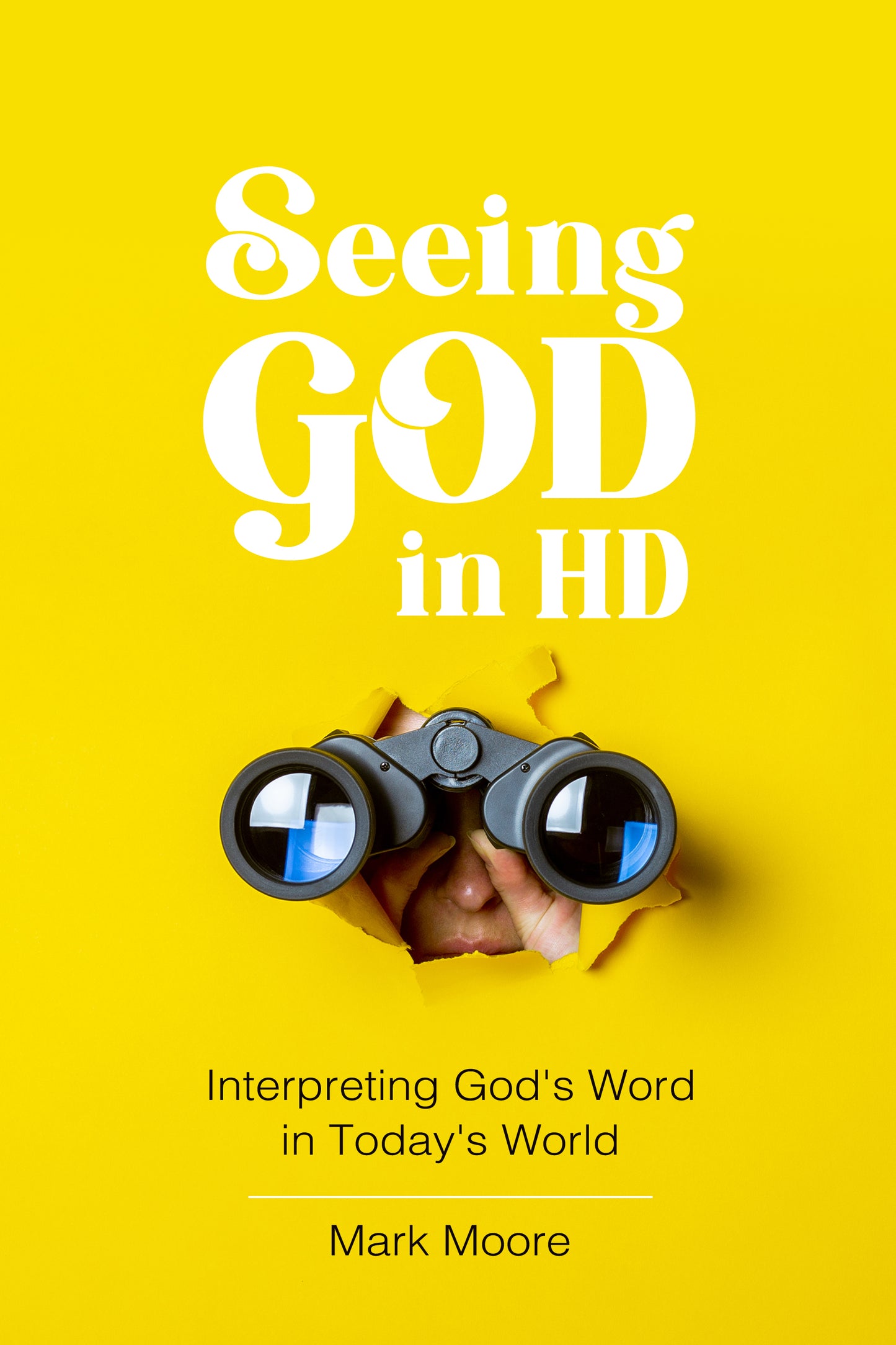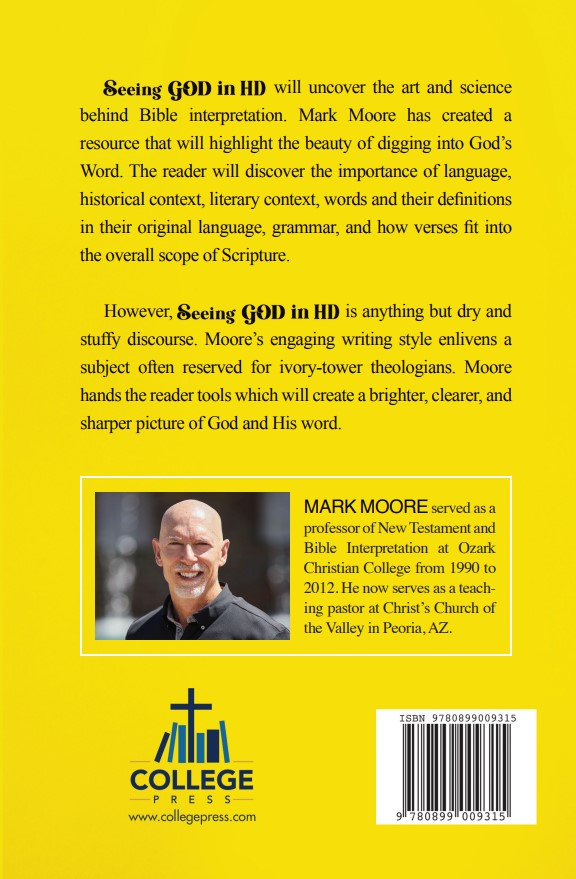College Press Publishing
Seeing God in HD: Interpreting God’s Word in Today’s World
Seeing God in HD: Interpreting God’s Word in Today’s World
Couldn't load pickup availability
Overview
This book is a wonderful starting place for those students of the Bible that wish to learn good skills of interpretation. It is not the goal of this book to tell you what the Bible says. Rather, the goal of this book is to provide you with the tools and information to enable you to determine for yourself how to read, interpret, apply, and communicate God’s message in Scripture.
The author himself states, “It would be difficult to overstate the excitement I feel at this moment as the author of such a work. After seventeen years of teaching at Ozark Christian College, I can tell you with confidence that this course has made more of an impact than anything I’ve ever taught. There is no question that other courses can deeply move students as they look at the biblical text under the guidance of a studied ‘rabbi.’ But enabling students to discover for themselves the hidden treasures of Scripture is a liberating and exhilarating exercise. Confidence in reading and understanding God’s Word is a priceless gift which will increase in value each time you share it. Enjoy the journey; responsibly execute the trust.”
ISBN 978-0-89900-931-5
WEB 931
Features
Diagrams, photographs, charts, and other teaching aids
Websites and printed resources each chapter’s subject matter
Exercises and assignments to enhance the learning process
Resources for doing word studies from Greek and Hebrew sources
Excerpt
"How to Access the Historical Background of a Text
There is hardly anything better than a cool story, and the Bible is chock full of them. But what makes them super-cool is when a teacher can unpack the historical details surrounding them. There are basically three sources from which to glean historical background information. The problem is that all three sources require extensive reading. Furthermore, the unfortunate fact is that most of what you will read will be neither exciting nor interesting. You may have to read ten or twenty pages before finding that really cool nugget. This is the nature of mining. You do a lot of digging through dirt and rock before finding precious metal. Patience, however, inevitably pays off. There is no shortcut for historical research. You must read, especially in the original sources, and read a lot. If you do, however, you will begin to build a cultural and historical portfolio that you can use for years to come in making the Bible come alive. OK, so here’s what you’ve been waiting for: the three sources for historical investigation.
First, your best historical source is the Bible itself. It is a big fat book with lots of stories and all of them are in a Jewish, middle-eastern setting. That is our target area and so the Bible becomes your greatest historical source. Let’s say you want to study shepherding: Who were shepherds? What were their duties? Were they respected? How well were they paid? etc. Just start searching the Scriptures for clues. In John 10, for example, Jesus speaks of his shepherding role of calling the sheep by name, protecting them from predators and robbers, putting them in their pen at night, and being the ‘door to the sheep’ which required laying in the opening of the low rock wall. We also learn that hired hands will flee in the face of danger and sometimes kill the sheep themselves to eat them. True owners, on the other hand, will organize search parties for wayward sheep, lay down their lives for their sheep, lead them to still waters, and separate them from goats (cf. Psalm 23; Ezekiel 34; Zechariah 11). The information is there in the Bible if we are willing to take the time to search it out through concordance work.
Second, your reading of the Bible should be augmented with a Bible Dictionary or a Bible Encyclopedia (really the only difference between the two is their relative length—encyclopedias are longer and more comprehensive). Look up your topic (alphabetically) and see what an expert in the field has to say about agriculture, building, children, dogs, east, fasting, goats, healing . . . Xerxes, youth, Zedekiah. These dictionaries and encyclopedias can be very expensive. Don’t be fooled by the latest edition with the new color pictures on the cover. Ninety-nine percent of the information in the old edition is identical to the new. Want my advice? Buy a computer concordance that has one of these embedded in it. It won’t be the newest, but it will have about ten times more information than you will ever use anyway. Another option is simply to access the good material that has been made available online for free."
Other Books by This Author
Dragons, John, and Every Grain of Sand
La vida cronológica de Cristo, tomo 1 (The Chronological Life of Christ, vol. 1)
La vida cronológica de Cristo, tomo 2 (The Chronological Life of Christ, Vol. 2)
Cómo esquivar a un dragón (How to Dodge a Dragon)
La predicación de Jesús (The Preaching of Jesus)
La pasión de Jesús (The Passion of Jesus)
El poder de Jesús (The Power of Jesus)
La persona de Jesús (The Person of Jesus)
Encuentros con Cristo (Encounters With Christ)
About the Author
Mark Moore served as a professor of New Testament and Bible Interpretation at Ozark Christian College from 1990 to 2012. He now serves as a teaching pastor at Christ’s Church of the Valley in Peoria, AZ.
Share




